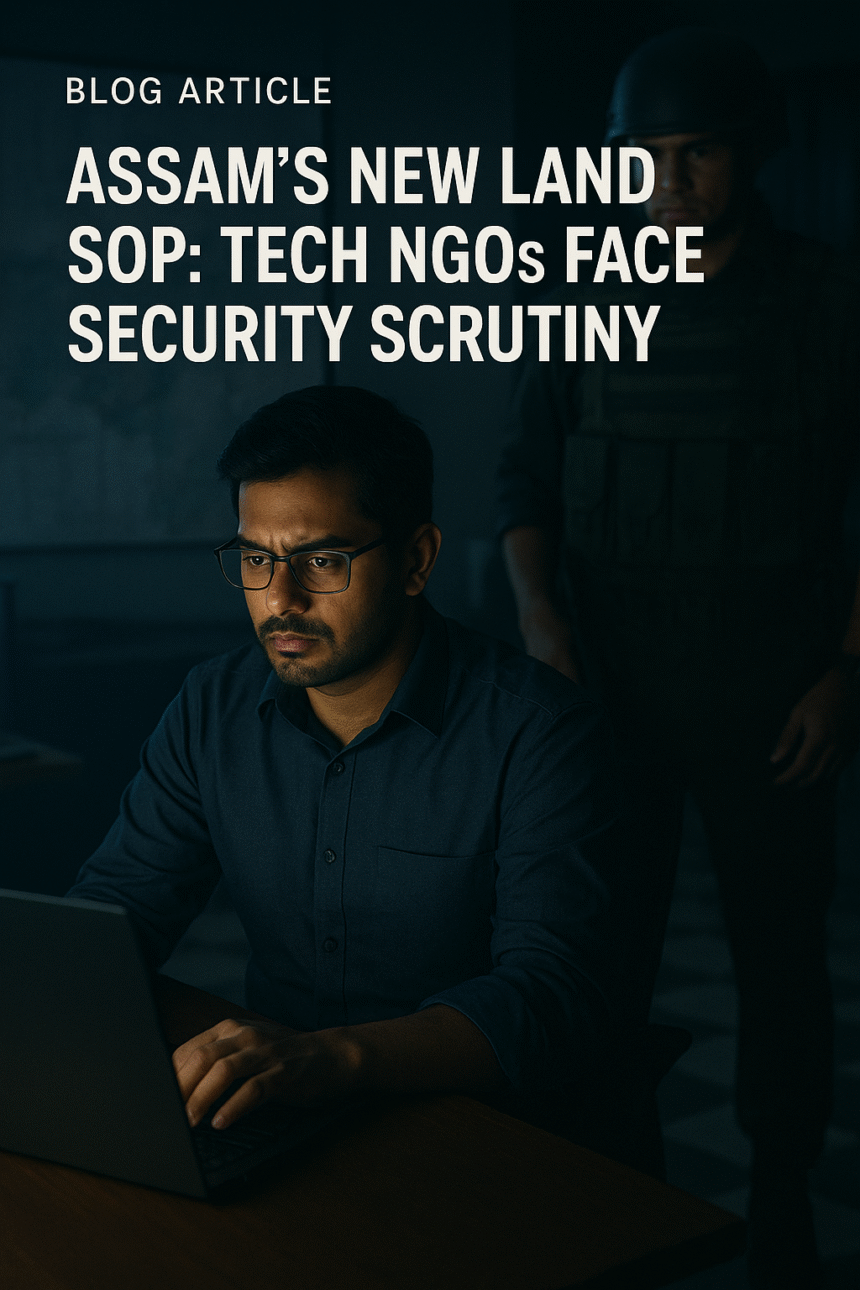analysisWe need to craft a news article about Assam’s new Land deal SOP & effect on tech sector NGOs. Focus keyphrase interfaith land deals. Should be 1000-1500 words. Use required sections with headings
Background/Context
Assam’s demographic dynamics have long been a subject of political and social debate. With increasing numbers of migrants from Bangladesh and shifting religious compositions in districts like Barpeta, Goalpara, and Dhubri, the state’s leadership has intensified its focus on safeguarding indigenous property rights. The latest SOP, introduced by the cabinet on Wednesday, echoes the Biplab Sharma Committee’s mandate under Clause 6 of the Assam Accord to protect Assamese identity and communal harmony.
While the ordinance aims to curb fraudulent and coercive land transfers, it also reflects a broader strategy to curb what the state calls “illicit land acquisition” by external actors, including NGOs that seek to build hospitals and schools in newly developed tech hubs across Assam’s capital and district centers.
Key Developments
- Special Branch clearance for all interfaith land transfers: Any transaction involving parties of different religions must now receive formal police vetting before the Deputy Commissioner approves the deed.
- Scope extends to NGOs: The SOP explicitly includes non‑governmental organizations from outside Assam, especially those establishing educational or healthcare institutions, which are often early adopters of technology infrastructure.
- Exemptions for intra‑community deals: The directive allows land transfers between parties of the same religion to proceed under the existing procedures.
- Enforcement focus: The policy is expected to be enforced through a streamlined digital portal where applications for land transfer are submitted, reviewed by the Special Branch, and then forwarded to the Deputy Commissioner.
- Penalties outlined: In case of contravention, the state has outlined punitive measures ranging from fines to revocation of land titles and criminal prosecution.
According to Chief Minister Himanta Biswa Sarma, “In a sensitive state like Assam, we cannot afford to ignore the role of communal identity in land transactions. This SOP will enforce transparency and prevent misuse of property that might inflame communal sentiments.”
Impact Analysis
For tech‑sector NGOs operating in burgeoning cities such as Guwahati and Dibrugarh, the SOP raises several operational challenges:
- Lengthened timelines: The approval process now requires an additional police clearance step, potentially adding 2–3 months to acquisition schedules.
- Increased due diligence costs: NGOs will need to engage legal counsel and security consultants to prepare detailed affidavits and background checks for the Special Branch.
- Limitations on cross‑religional collaboration: Many NGOs work with partners from diverse religious backgrounds. The new rule mandates extra scrutiny for any joint land investment, which could delay projects focused on co‑working tech hubs and community entrepreneurship.
- Risk of project abandonment: Some NGOs may withdraw from land‑based initiatives altogether to avoid the procedural burden, shifting focus toward franchised or lease‑based models that sidestep permanent ownership.
Moreover, the SOP could alter the investment climate for tech companies looking to partner with NGOs on digital literacy and tech start‑up incubation. “The policy introduces a new layer of risk assessment that could make external investors more cautious,” notes a senior policy analyst. “While the objective is to preserve local identity, a shorter, more predictable procurement pathway is often a prerequisite for high‑tech ventures.”
Expert Insights/Tips
With the SOP in effect, NGOs and tech firms should adopt proactive strategies to mitigate delays:
- Pre‑application Assessment: Conduct an internal audit of the beneficiary parties’ religious affiliations and historical background to anticipate special branch scrutiny.
- Engage Early with Authorities: Submit a pre‑submission packet to the Special Branch, including statutory documents, tax clearances, and a detailed project impact report.
- Leverage Local Partnerships: Collaborate with indigenous NGOs or community groups that have a favorable track record to share legal responsibility and reduce scrutiny for cross‑religion transactions.
- Plan for Flexibility: Explore lease‑purchase or land‑share agreements as interim solutions until the SOP’s procedural timelines mature.
- Maintain Transparency: Publicly open the acquisition trail on digital platforms to preclude allegations of coercion, ensuring compliance with both the new SOP and the broader Assam Accord mandates.
Tech‑sector volunteerism can also contribute by organizing community outreach programs that highlight shared technological goals. “When NGOs actively involve local stakeholders, especially from the minority community, it strengthens the project’s social license and eases the special branch’s review process,” says a senior NGO leadership consultant.
Looking Ahead
The Assam government’s new SOP is a first step in what analysts foresee as an extended regulatory framework tailored to land policy and community welfare.
- Digital scrip of land records: The state is rolling out an electronic land registry to complement the SOP, which could streamline clearance and reduce bottlenecks.
- Inter‑government cooperation: Neighboring states in the Northeast are expected to adopt similar measures, potentially coordinating a pan‑regional standard for interfaith land transactions.
- Legal clarifications: The state is scheduled to hold a public forum next month to address queries from NGOs, businesses, and the general public, ensuring operational clarity.
- Investment incentives: To offset procedural delays, the government has announced a set of incentives for tech start‑ups that demonstrate social impact, including tax rebates and streamlined licensing for community‑based projects.
As the policy ecosystem evolves, NGOs planning land acquisition for tech incubators, digital labs, or research facilities must stay alert for any amendments that could further tighten or relax requirements.
Reach out to us for personalized consultation based on your specific requirements.
